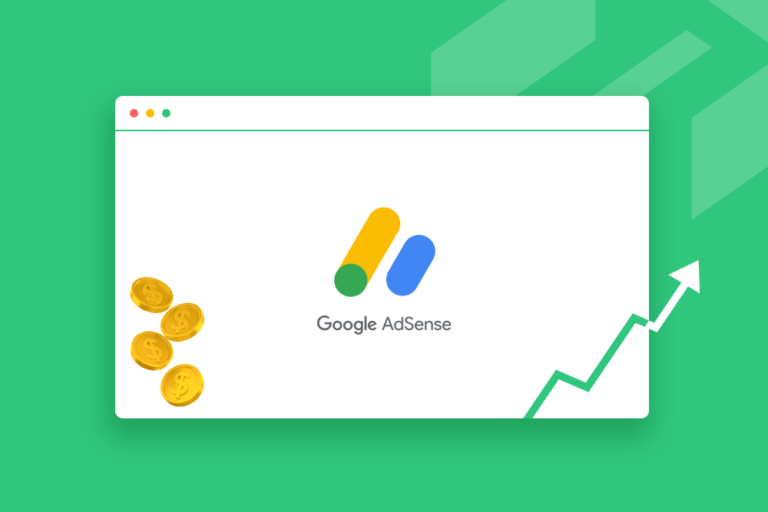SEO is essential for any business looking to thrive online. However, small businesses often overlook common SEO mistakes that can hinder their success.
These mistakes can lead to poor website rankings and loss of visibility. Understanding and correcting these errors is crucial for improvement.
In this guide, we’ll identify the common SEO mistakes small business owners make. We’ll also provide actionable tips to help you optimize your website and boost your online presence.
Understanding SEO and Its Importance
Search Engine Optimization, or SEO, is a digital marketing strategy.
It involves optimizing your website to rank higher on search engine results pages (SERPs).
Why is this important?
Because higher rankings mean more visibility.
More visibility means more traffic to your website.
And more traffic can lead to more conversions, sales, and growth for your business.
But SEO isn’t just about search engines.
At its core, SEO is about understanding your audience.
It’s about creating high-quality, relevant content that meets their needs.
It’s about providing a seamless, enjoyable user experience on your website.
In other words, good SEO is good for both search engines and your audience.
But as we’ll see in the next section, there are many ways to get SEO wrong.
And these mistakes can have serious consequences for your website’s ranking and your business’s success.
So let’s take a closer look at the top SEO mistakes that small businesses make.
The Top SEO Mistakes Small Businesses Make
Small businesses often make certain SEO mistakes.
These mistakes can hurt their website’s ranking.
They can also impact the business’s online visibility.
And ultimately, they can affect the bottom line.
Here are the top 10 SEO mistakes that small businesses commonly make:
- Neglecting Keyword Research
- Overlooking Mobile Optimization
- Ignoring Website Speed
- Producing Low-Quality Content
- Duplicating Content Across Pages
- Missing Out on Meta Descriptions and Title Tags
- Failing to Optimize for Local SEO
- Having a Non-Secure Website (No HTTPS)
- Using Ineffective Link Building Strategies
- Not Utilizing Analytics to Inform SEO Strategy
Let’s delve into each of these mistakes in more detail.
1. Neglecting Keyword Research
Keyword research is the foundation of SEO.
It involves identifying the words and phrases that your target audience uses in search engines.
But many small businesses neglect this crucial step.
They fail to understand what their potential customers are searching for.
And as a result, they miss out on valuable opportunities to connect with their audience.
2. Overlooking Mobile Optimization
Today, more than half of all web traffic comes from mobile devices.
Yet, many small businesses overlook mobile optimization.
Their websites are not designed to be viewed on smaller screens.
This can lead to a poor user experience.
And it can hurt their ranking on search engine results pages.
3. Ignoring Website Speed
Website speed is a critical factor in SEO.
Slow-loading websites can frustrate users.
They can lead to higher bounce rates.
And they can negatively impact your website’s ranking.
Yet, many small businesses ignore this crucial aspect of SEO.
4. Producing Low-Quality Content
High-quality, relevant content can attract and engage your audience.
But many small businesses produce low-quality content.
This content does not provide value to the user.
And it can hurt the website’s ranking on search engine results pages.
5. Duplicating Content Across Pages
Duplicate content can confuse search engines.
It can make it difficult for them to determine which version of the content is more relevant to a search query.
As a result, all versions of the content may suffer in rankings.
Yet, many small businesses duplicate content across their website pages.
This is a common SEO mistake that can hurt your website’s ranking.
6. Missing Out on Meta Descriptions and Title Tags
Meta descriptions and title tags are important elements of SEO.
They can influence click-through rates from search engine results pages.
But many small businesses neglect these elements.
They fail to create compelling meta descriptions and title tags.
And as a result, they miss out on potential traffic to their website.
7. Failing to Optimize for Local SEO
Local SEO is crucial for small businesses.
It involves optimizing your website to attract traffic from local search queries.
But many small businesses fail to optimize for local SEO.
They miss out on opportunities to connect with local customers.
And they lose potential business to competitors who are better optimized for local search.
8. Having a Non-Secure Website (No HTTPS)
Security is a top priority for search engines.
Websites that are not secure (no HTTPS) can be penalized in rankings.
Yet, many small businesses have non-secure websites.
This can hurt their website’s ranking.
And it can also erode trust with users.
9. Using Ineffective Link Building Strategies
Link building is an important part of SEO.
But not all link building strategies are effective.
Some can even harm your website’s ranking.
Yet, many small businesses use ineffective or harmful link building strategies.
This is a common SEO mistake that can hurt your website’s ranking.
10. Not Utilizing Analytics to Inform SEO Strategy
Analytics can provide valuable insights into your website’s performance.
They can help you understand what’s working and what’s not in your SEO strategy.
But many small businesses do not utilize analytics.
They fail to use data to inform their SEO strategy.
And as a result, they miss out on opportunities to improve their website’s ranking.
How to Identify and Fix Your SEO Mistakes
Identifying and fixing SEO mistakes is crucial for improving your website’s ranking.
But how do you go about it?
The first step is to conduct an SEO audit.
This involves examining your website’s structure, content, and performance.
You’ll need to identify any issues that could be hurting your SEO.
And then, you’ll need to take steps to fix these issues.
Here are some steps to follow:
- Conduct an SEO audit
- Leverage tools for SEO improvement
- Stay updated with SEO best practices
Conducting an SEO Audit
An SEO audit is a comprehensive examination of your website.
It involves checking your website’s structure, content, and performance.
The goal is to identify any issues that could be hurting your SEO.
Once you’ve identified these issues, you can take steps to fix them.
Here are some steps to follow when conducting an SEO audit:
- Check your website’s structure: Is it easy to navigate? Are there any broken links?
- Examine your content: Is it high-quality and relevant? Are you using keywords effectively?
- Assess your website’s performance: Is it fast and mobile-friendly? Is it secure (HTTPS)?
- Review your backlink profile: Do you have high-quality, relevant backlinks? Are there any harmful or spammy links?
- Analyze your social signals: Are you engaging with your audience on social media? Are your social media profiles linked to your website?
Leveraging Tools for SEO Improvement
There are many tools available that can help you improve your SEO.
These tools can provide valuable insights into your website’s performance.
They can help you identify issues that could be hurting your SEO.
And they can provide recommendations for improvement.
Here are some tools you might find useful:
- Google Analytics: This tool provides insights into your website’s traffic, user behavior, and performance.
- Google Search Console: This tool helps you monitor your website’s presence in Google search results.
- SEMrush: This tool provides SEO analysis, including keyword research, backlink analysis, and competitor research.
- Moz: This tool offers a suite of SEO tools, including keyword research, link analysis, and site audits.
- Ahrefs: This tool provides comprehensive SEO analysis, including keyword research, backlink analysis, and competitor research.
Staying Updated with SEO Best Practices
SEO is a constantly evolving field.
Search engines regularly update their algorithms.
And new SEO strategies and techniques are constantly being developed.
It’s important to stay updated with these changes.
You can do this by following reputable SEO blogs, attending webinars, and participating in SEO forums.
Here are some resources to help you stay updated:
- Google Webmaster Central Blog: This is Google’s official blog for news on crawling and indexing.
- Moz Blog: This blog offers advice, research, and how-tos from industry experts.
- Search Engine Journal: This publication offers the latest news and tutorials on SEO and SEM.
- SEMrush Blog: This blog provides practical tips and advice on SEO, content marketing, and social media.
- SEO by the Sea: This blog offers insights into search engine patents and white papers.
Conclusion: Turning Mistakes into Opportunities
SEO mistakes can be costly.
They can hurt your website’s ranking and visibility.
But they also present opportunities.
By identifying and fixing these mistakes, you can improve your SEO.
You can increase your website’s visibility.
You can attract more traffic.
And you can convert more visitors into customers.
In this guide, we’ve covered some of the most common SEO mistakes that small businesses make.
We’ve also provided actionable advice on how to fix these mistakes.
Remember, SEO is a long-term strategy.
It requires patience, persistence, and continuous learning.
But with the right approach, you can turn your SEO mistakes into opportunities for growth.
So, start auditing your website today.
Identify the mistakes you’re making.
And take steps to fix them.
Your website’s ranking will thank you.




